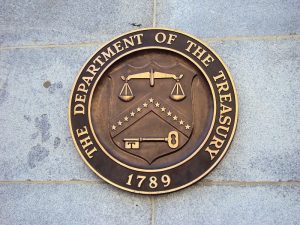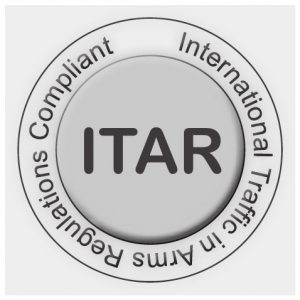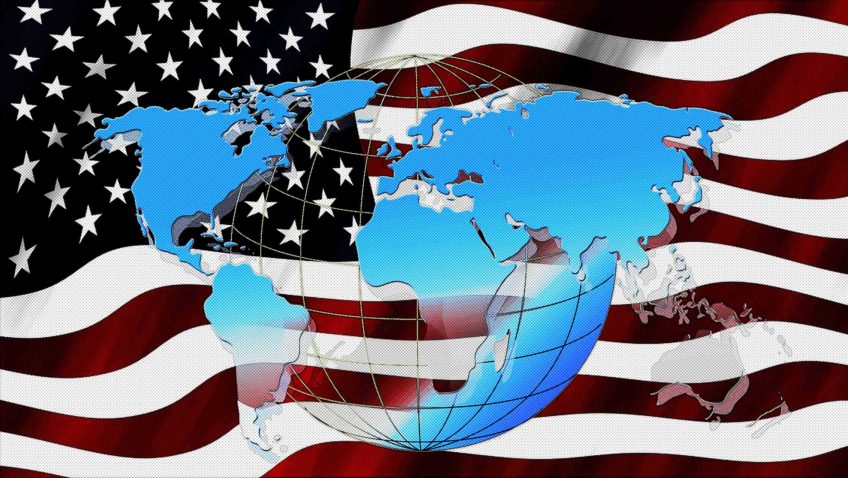The United States is doubtlessly the greatest power on earth. This fact is not an opinion but a fact. YoungDiplomats tries to understand on what the U.S power relies from a economical and juridical point of view ! We’ve figured out three ways the U.S has to dominate the world and to impose its view on almost everywhere. Of course, this country has plenty other tools to maintain its influence worldwide, but we’ve decided to analyze the three more important tools !
The weapon of extraterritoriality
The domination of the United States over the rest of the world is due to the fact that certain American laws apply to natural or legal persons from third countries because of sometimes tenuous links with the United States (a payment in dollars for example). It is the United States’ unstoppable weapon for punishing non-American individuals and companies. The laws apply in particular to all companies operating on regulated financial markets in the United States. These laws essentially concern three areas: international sanctions, including unilateral sanctions imposed by the United States; the bribery of public officials abroad; and, finally, the application of US personal taxation to non-resident US citizens. For Donald Trump, the application of an aggressive extraterritorial policy is apparently his doctrine.
The CFIUS weapon

The United States was already one of the countries where foreign buyers had to show no interest in buying an American company with sensitive technologies. Not enough for Donald Trump. The US administration decided to take further steps to lock down its foreign investment industry. The new rules, linked to the reform of the Foreign Investment Committee (CFIUS) adopted this summer, will require foreign investors to submit to the authorities any acquisition of an interest – and no longer just a takeover – in a US company in one of the 27 key designated sectors, including aeronautics, telecommunications, IT, semi-conductors and batteries. This reform is the first update of CFIUS rules in more than 10 years. However, the Trump administration would prepare further regulations for the fields of artificial intelligence and infrastructure.
These new rules will take effect on November 10 before final implementation in 15 months. They now provide that any foreign investment in one of the key industries should be reviewed and possibly blocked if it represents a “threat of erosion of technological superiority”, according to a senior Treasury official. Three criteria will thus motivate the CFIUS inspection: if there is foreign participation, from wherever it comes, even a minority one; if there is an allocation to a foreigner of a seat on the board of directors of the American company in question, and if the foreign investor can influence decision-making within this technology company.
No foreign country was specifically targeted, but in the past, the CFIUS, an intergovernmental body whose guardian is the Treasury, has blocked takeovers by Chinese investors. Huawei has already had to abandon the acquisition of the American IT companies 3 Leaf in 2012 and 3 Com in 2008. By 2016, according to the latest figures, CFIUS had reviewed 172 transactions, which were at the time of the takeovers, and launched 79 investigations with a single negative decision.
The ITAR weapon

Four letters are of concern to defence industrialists: ITAR (International Traffic in Arms Regulations). Why? If a weapons system contains at least one American component under the US ITAR regime, the United States has the power to prohibit its export sale to a third country. However, many French and European companies integrate American components, particularly electronic components, into many equipment, particularly in the aeronautics and space sectors. In front of the French national assembly, Antoine Bouvier the CEO of a big corporation acknowledged “Our dependence on components subject to ITAR rules is a critical point,”
Washington recently vetoed the French arms industry by banning the export of MBDA’s Scalp cruise missile to Egypt and Qatar. As a result, this decision hinders the sale of additional Rafale in Cairo. This is clearly an attack on France’s sovereignty. This is not the first time that the United States has played with France’s nerves. Thus, they had long hesitated to apply the ITAR regulations to a French case in India. They finally didn’t do it. In 2013, they had already refused a request to re-export to the United Arab Emirates components “made in USA” needed to manufacture two French spy satellites (Airbus and Thales). François Hollande’s visit to the United States in February 2014 made it possible to settle this matter positively.








